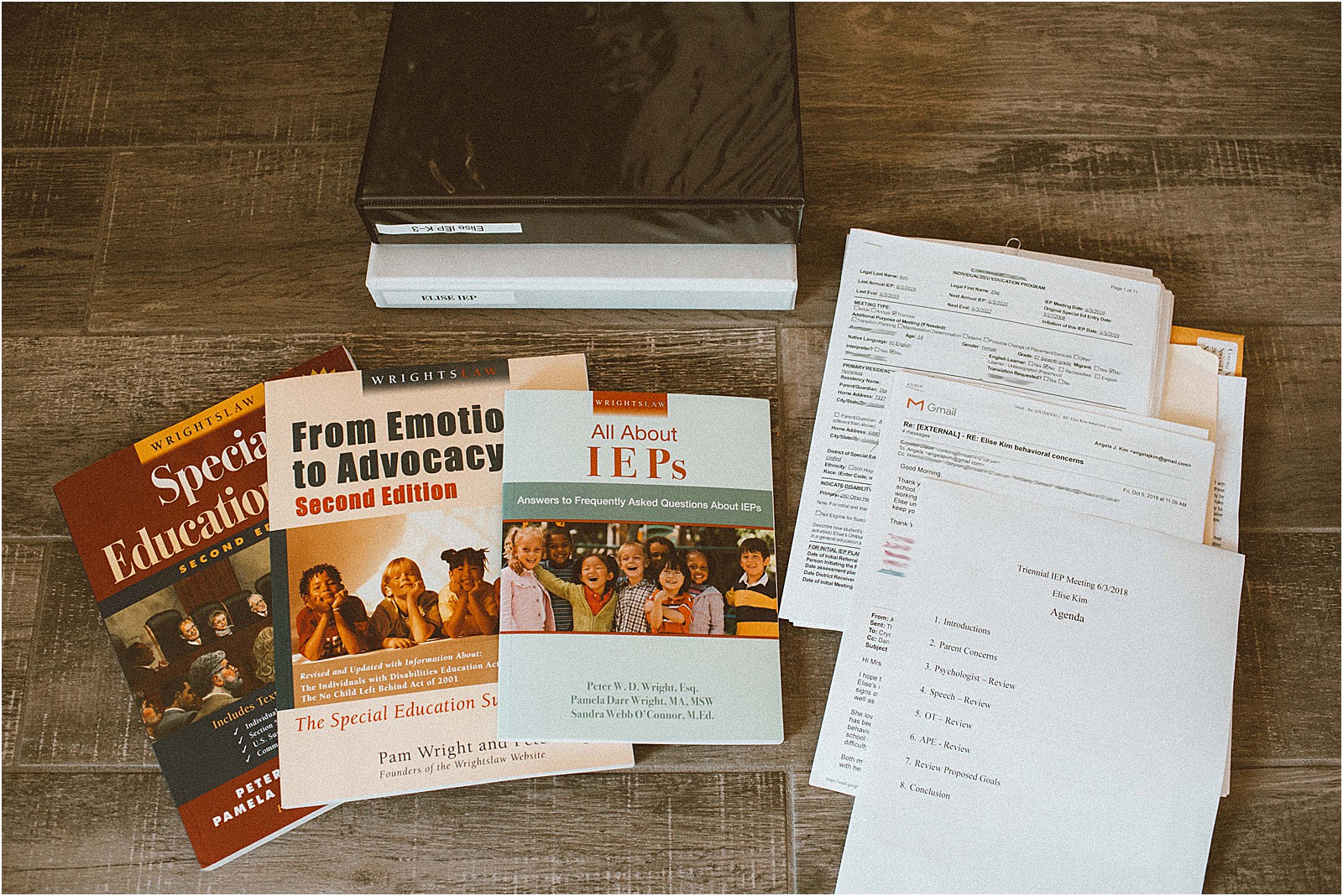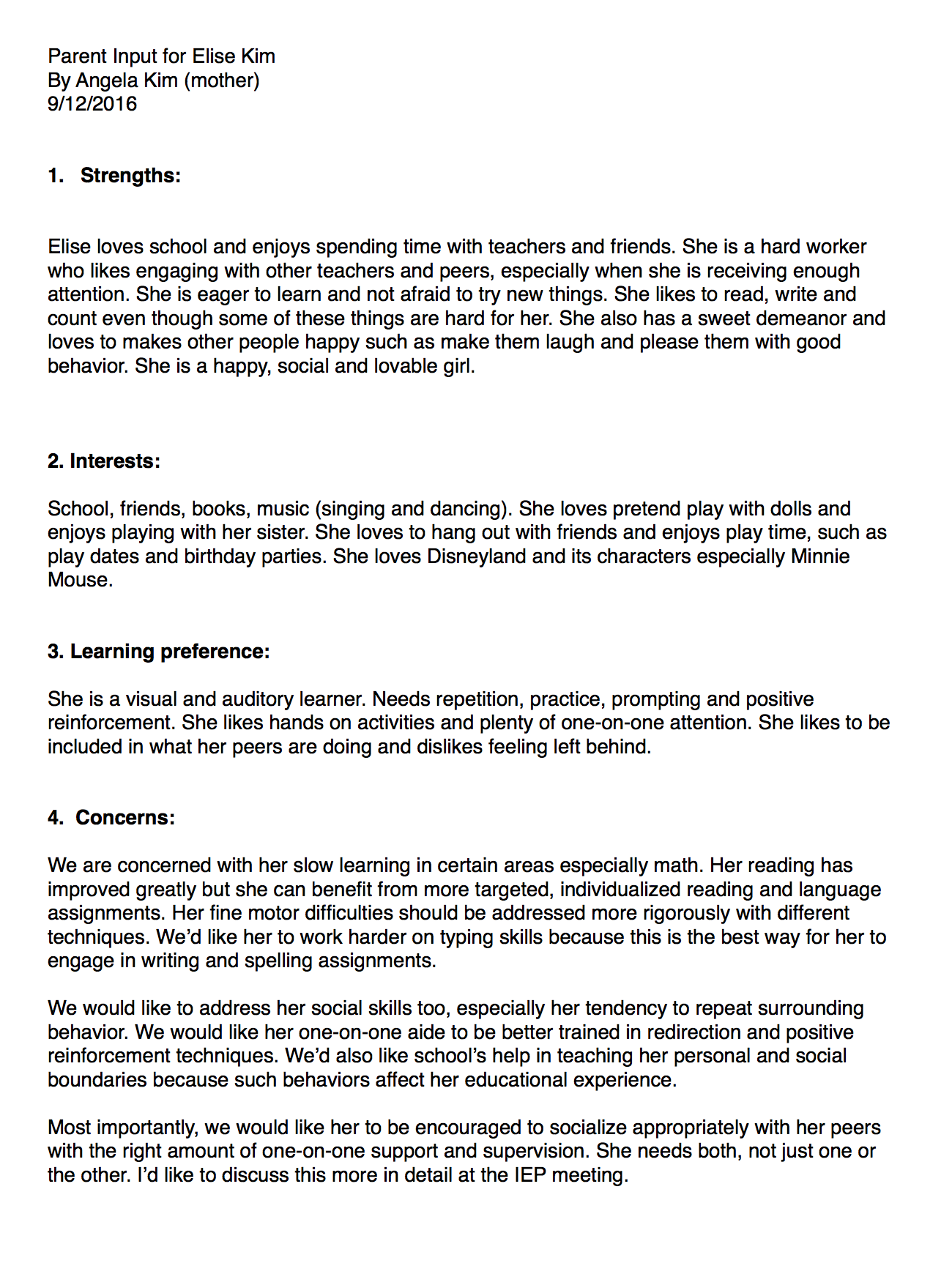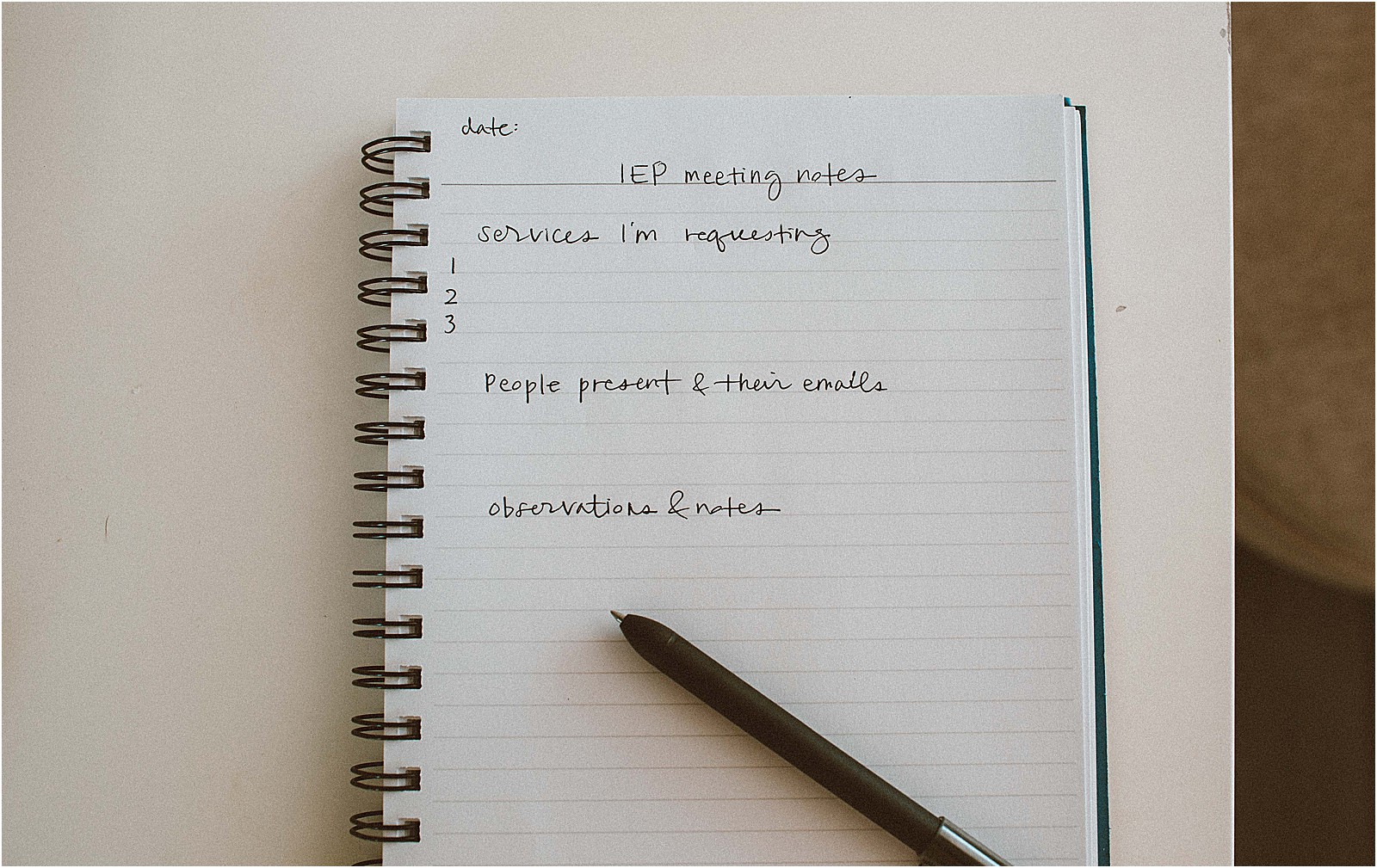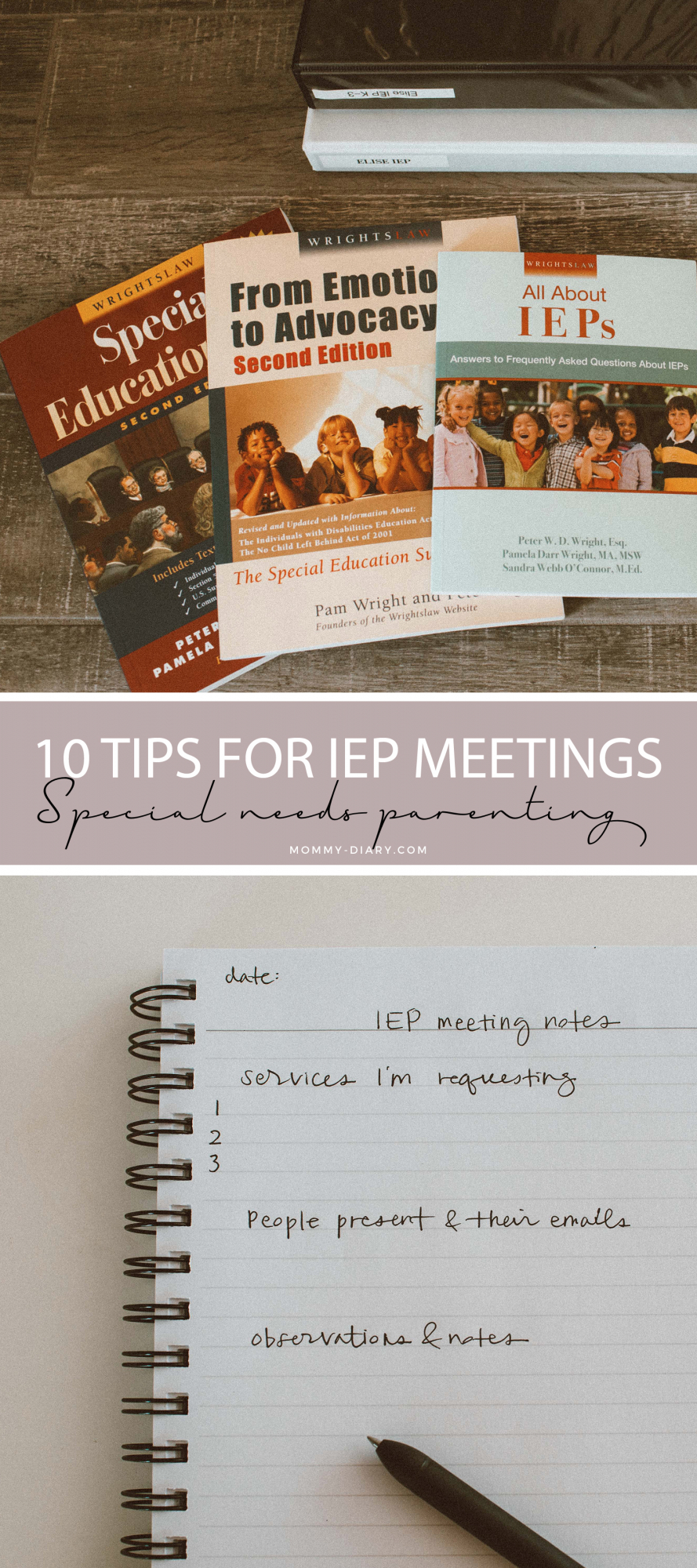Tips on how to prepare for IEP meetings for special needs parents
IEP meetings are much like business negotiations where the product/service involves your child. You have rights, you are powerful and you are the most important advocate for your child.
IEP Individual Educational Plans are crucial for any child with different needs, whether your child’s diagnosis is mild, moderate or severe. My daughter Elise had an IEP since she began with the school district at age 3 (once a child turns 3, the district takes over her academic and social needs from the regional center) and she is now 14 years old.
We have been lucky with a great and supportive team of teachers, administrators, psychologists, therapists and aides for the past 11 years but her transition to middle school has been quite difficult to say the least.


Many parents say ages 13 and 14 are difficult for any child, so you can only imagine the adjustments needed for a special needs child like my daughter.
To summarize, her rough school year consisted of escalated negative behaviors, inability to sit still and participate in school activities, acting out to teachers and aides, problems with transitions from a preferred activity to a non-preferred activity and even suspensions.
Due to her escalating behavioral concerns, her academic needs took the back seat, and while she has continued to meet some of her academic goals on the IEP, most goals are only “partially met.”

Today I want to share with you some of my tips for successful IEP meetings and important things to remember as you’re advocating for your child. I share these firsthand tips with hope that you can be more prepared for IEP meetings both emotionally and mentally and be the best advocate for your child.
1. Educate yourself about IDEA (Individuals with Disabilities Education Act) & other Special Education laws
You must do your research and read up on the latest laws. The laws are always changing so be sure you’re up-to-date with the latest amendments. You can begin your research by reading through IDEA.
The Individuals with Disabilities Education Act (IDEA) is a law that makes available a free appropriate public education to eligible children with disabilities throughout the nation and ensures special education and related services to those children.
The IDEA governs how states and public agencies provide early intervention, special education, and related services to more than 6.5 million eligible infants, toddlers, children, and youth with disabilities.
Infants and toddlers, birth through age 2, with disabilities and their families receive early intervention services under IDEA Part C. Children and youth ages 3 through 21 receive special education and related services under IDEA Part B at their residing district.
I also highly recommend reading through these books. The books are a little outdated and some of the laws may not be the latest but most of its recommendations are still helpful. Again, use the IDEA website for the latest updates.
2. Document all communication in writing via email
This is very important. DO NOT rely on verbal communication for requests and concerns. Whatever your concerns or requests are, be sure to document them all in writing via email. You can always communicate with your child’s teacher verbally, but once you’re home, note these again in an email.
I normally include my daughter’s teacher, any therapists (if necessary), the school administrator (vice principal or principal) and a point of contact at the district. For us this is the program specialist at the special education department but this can vary depending on district.
You can begin the email by saying something like this:
Hi team,
As I discussed with ___’s teacher earlier today, these are my current concerns.
Use personal stories, observations, experiences and emotion. You can write about what you observed, what your child told you, a change in your child’s behavior, etc.
Then you can follow up with your proposed solution and request.
You can say something like
Therefore, I request that district provides ______ and _______ for such and such reasons.
If your child had a rough day at school, document that as well.
Having everything IN WRITING will greatly improve your chances of getting the services you need, especially as you go through the appeal process such as mediation and due process hearing.

3. Have an idea of what you want for your child before the IEP meeting
It’s crucial that you know what you want for your child before the meeting. This means you should do your research, ask other parents or communities for advice/support and speak to specialists, therapists and doctors before the meeting.
Whether you want your child to be mainstreamed into general education, placed in a different class, receive a certain service x amount of times, have a 1:1 aide, etc. you should have an idea what is best for your child.
DO NOT solely rely on your child’s teacher, administrators or the district to lay things out for you because often times, they are not always thinking in the best interest for your child. This is mainly due to budget concerns and many administrators and district personnel play the role of “gate keepers” NOT to provide services for children.
Your child’s teacher may want to help, but it’s difficult for him/her to encourage you to ask for certain services or to appeal the district’s decision. I found that most teachers have to remain neutral in case of disagreement between parents and the district and they don’t like to go against their own administrators.
This is the sad reality of US public education, where certain privileged children receive more and better services than others.
In the eyes of IEP and special education law, “privileged” means children whose parents have the means (i.e. money and knowledge) to educate themselves and advocate for their children.
4. Try to be calm but be firm and assertive as necessary
IEP’s are intimidating. I normally attend with my husband so it’s the two of us and 6-7 other teachers, therapists, administrators and district personnel. Some are kind and understanding, and some are not. I’ve gotten into disputes with district personnel and even district psychologists (licensed BCBA’s and MA’s) for trying to shift the blame onto the parents (me), minimizing problems and being condescending in their approach.
I’ve never lost my cool, but I have gotten upset during IEP meetings. This is okay- as this just lets the district know that you will not let them bully you and your child to agreeing to something you don’t feel is right.
Stay calm, but let them know you’re serious and you will not back down until your child gets what he/she deserves.
5. You and your special needs child have a lot of rights (but they don’t want you to know that)
Know before you go in to any IEP meeting that you and your special needs child have a lot of rights. If your child is not meeting his/her goals, struggling to catch up to his/her peers academically, getting written down or even suspended for behavioral issues, not enjoying school for whatever reason– you need to step in.
If you want a certain service such as ABA, your child doesn’t necessary have to have the Autism diagnosis despite what they may tell you. Don’t ever take no for an answer and always ask questions. Think critically and analytically.
In fact, numerous studies have shown that ANY child with different needs can benefit from ABA services. Find such research, make copies and add it to your documents. I was able to get ABA as well as 1:1 aide by doing my research, copying all the documents, and adding it to my formal request.
By law, the school is responsible for providing “free and appropriate” education for children with disability during school hours. This means they are responsible for paying for appropriate aides, speech therapy, occupational therapy, adaptive PE, ABA support, devices, tools, ipads, etc needed for your child’s success in school. You just have to prove what is “appropriate” for your child with data, evidence, research and written reports.
Typically when the district and parents go to court, the district loses because disabled kids and parents have a lot of rights by law. As long as you have sufficient data, research and evidence to back up your request, you will win. Know this and use it to your advantage.
6. Know the language
You’ll find that the IEP team uses a lot of language and abbreviations you don’t understand. From my personal experience, they don’t take the extra time to explain what the language means unless the parent asks. If you don’t understand certain abbreviations, ask them to clarify. Write them down.
If your child is young, use words like “safety” in classroom to make your point. Use terms “free and appropriate education” to make the school accountable. Your child has the right to a “least restrictive environment” by law. If you feel that your child’s classroom setting is “restrictive” in any way, logically explain why with facts and data.
Go through the “Notice of Procedural Safeguards and Parent’s Rights” and IDEA to mark certain “key language” that’ll help to prove your point.
7. Ask for data. Think logically.
Don’t rely on any verbal communication to determine your child’s needs and placement. Also, be sure the teacher and therapists are taking data in class because this is the only evidence that’ll help you during the appeal process. The teacher or staff saying “you child does this and this” means nothing in the eyes of law. Often data won’t be taken unless the parent specifically requests it. Gather all data and evidence in writing and reports.
Practice thinking logically. When you are requesting certain services, back up your request with your reasoning with logic, data and evidence.
8. Bring support. Take notes. Bring water (or snacks).
IEP meetings are long and intimating, so be sure to bring support. I’d suggest always bringing your spouse or partner because the two of you have to be on the same team and its hard to relay everything after the meeting. Take notes and be proactive. Bring water so you can stay hydrated.
If you’re feeling extra generous, bring donuts or light snacks for the team as this can soften the energy in the room. I’ve brought snacks before when I knew the team was easy to work with, and there were times when I went in in full mama bear mode without snacks because I wanted them to know I mean business. Use your best judgement when it comes to this. Trust your intuition.

9. Trust your intuition. You know your child best!
I can’t reiterate this enough. TRUST YOUR INTUITION because you know your child best. Know that these therapists and psychologists only see your child for a limited time and they may not understand your child the way you do. I’ve told a school psychologist “but you don’t know my child” when she tried to tell me what is best for my child. Don’t be intimidated by their title or degree. Often they try to resolve the issue by offering a preexisting solution but special needs children don’t work by an one-size-fits all approach.
If something doesn’t feel right, don’t agree. Never sign any paperwork unless you feel it is the best solution for your child. The only documents you must sign is if you want the school to conduct an evaluation and that can only be done with your permission.
*Bonus tip
Don’t ever agree to lowering hours of therapy unless the school provides clear data with evidence. Them not having enough available therapists is not an excuse because it is the district’s responsibility to provide “free and appropriate education” for all children with an IEP according to IDEA.
The only instance when you should agree is when your child has met his/her goals and no longer needs the services or will benefit from group therapy rather than individual, which often happens with older kids or kids who prefer the group setting.
10. Feel and believe that you’re empowered
When we parents speak and behave from a place of power rather than lack, it shows through our demeanor and energy. IEP meetings can feel like a power struggle between the school and parents. I know it’s easy to feel disempowered and hopeless when it comes to dealing with your special needs child but now is the time to be brave!
Be professional and firm, don’t be afraid to ask questions, ask for clarifications as necessary and don’t show them that you are scared. IEP meetings are much like business negotiations where the product/service involves your child. You have rights, you are powerful and you are the most important advocate for your child.
I hope you found these tips helpful and I’m always here if you ever need support. 🙂

Did you enjoy this post helpful? If so, please pin the image below to your Pinterest. It helps more moms find this post for their kids! You can also continue by reading 5 Tips For Special Needs Parenting.



Angela, this was awesome!! I loved every word and this is so needed. every parent could take something away from this bc we all have the power to advocate for our child. it is so easy to be intimidated by school admin and titles, but at the end of the day we must stand firm to what we know is the best for our child utilizing the laws to our best advantage. practical tips are the best. thank you angela!
I’m so glad you find it useful. I agree, it can be so intimidating but with the right tools and resources, parents are the best advocate for their children! Thank you for your kind words, it makes my mission worthwhile. 🙂
This sounds very helpful. I know of a mom who has no idea about this. This will be a great resource for her
I hope you pass it along to that mom so she finds it valuable. Thank you for reading!
So so informative!! My son is 4 TURNING 5 and will be in kIndergaRten next year. He has an IEp and has nOt met his goals at each meeTings. I had no idea you couLd negotiate their services. I am nervous tHat he will be in school full day now but am confident to speak up now in Fut meetings. Thank yiu so much for all the info
I’m so glad you read this post. Yes you can most definitely ask and negotiate for services. You have to because early intervention is key and the sooner your child begins adequate services, better chances of your child meeting his goals! Best of luck to you!
Thank you for sharing this! It is so important for parents to advocate for their children. My son is about to have his second speech evaluation, and we will likely end up with an iep for him. I will definitely refer to this post throughout the process.